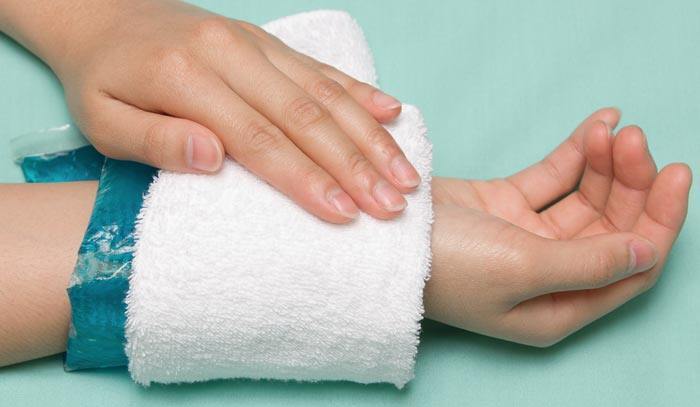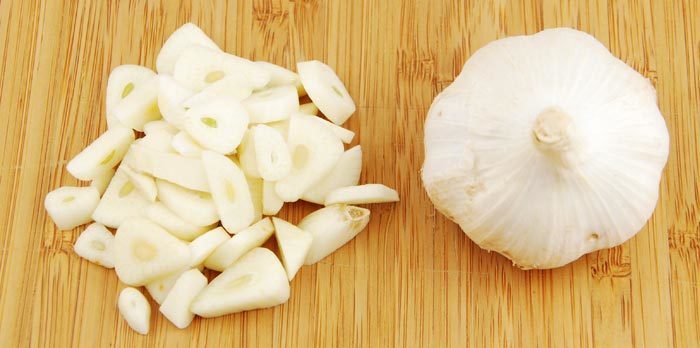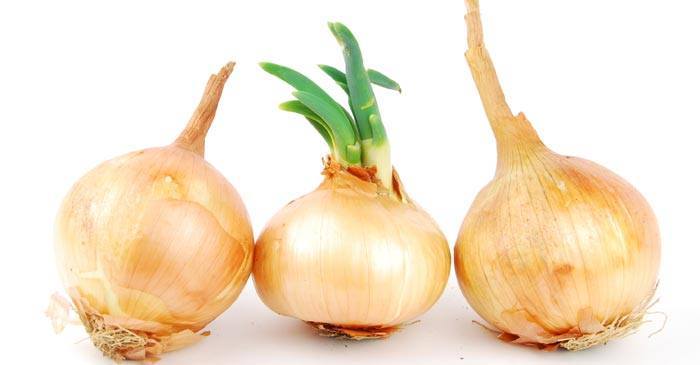Last Updated on March 27, 2017 by Marc Seward
What are Boils?
A boil, which is sometimes known as a skin abscesses, is a localized skin infection which starts off as a red and tender area before becoming firmer and more painful with time. Later on, the center of the boil fills with pus, which forms a visible head that can drain or weep spontaneously without treatment. For boils that are infected medical treatments may be required up to having it surgically drained.
Boils occur for a variety of reasons and the exact causes are not always obvious. Some contributing factors include ingrowing hairs, splinters, cuts and scrapes, poor health, hygiene and nutrition.
People with an immunity system weakened by certain medications or those with certain illnesses such as diabetes are more prone to develop boils. Boils can develop pretty much anywhere on your body and are especially common on your face, buttocks, armpits and trunk.
Home Remedies for Boils
If you develop a boil, you don’t need to rush out to see the doctor; most boils can be effectively and conveniently treated at home and the sooner you start; the better. Most boils will react better to early treatment and it will also prevent any complications from developing later. People have been treating boils very successfully at home for a number of years so let’s take a closer look at your options.

1. A Warm Compress
Applying heat to the boil with a warm compress is probably the easiest and certainly one of the most effective ways that you can treat your boil at home. The heat accelerates the boil’s progression, softening it and allowing the boil to burst more quickly and with minimal pain.
How to do it
- Wash the boil and its surrounding area with warm water (you can add salt to the water) and gentle soap.
- Submerge a clean cloth in the warm water and soak it well. Take out the cloth and wring out any excess water.
- Place the damp cloth on your boil and leave it in place for between 10 and 15 minutes.
- Repeat the process between 3 and 4 times a day until your boil is healed.

2. Tea Tree Essential Oil
Tea tree essential oil is a versatile essential oil that is used for a variety of medicinal complaints. Its antifungal, antibacterial and antimicrobial properties make it especially useful for treating skin conditions including the treatment of boils.
How to do it
- Wash the boil and the surrounding skin with clean warm water.
- Using a cotton swab, apply a few drops of tea tree essential oil onto your boil. You can use tea tree oil undiluted but it is recommended that you dilute the oil with water to a 1 to 9 ratio before applying it to your skin.
- Repeat this process 2 or 3 times daily until your boil is healed.

3. Indian Lilac
Indian lilac which is also known as neem is full of medicinal properties and has been used for centuries to treat a range of conditions. It has a number of applications for the skin owing to its antibacterial, antifungal and antioxidant ability and is a popular and effective remedy for treating boils.
How to use it
- Grind a handful of neem leaves into a paste by mixing them with a small amount of water.
- When the paste is ready, simply apply it directly to the boil.
- Repeat the process 2 or 3 times a day.
Alternatively you can boil a handful of neem leaves in water and reduce it by half.
- After the liquid has cooled, use it to rinse the boil and the surrounding skin.
- Again, you can repeat this process 2 or 3 times daily until your boil has gone.

4. Garlic
Good old garlic; it tastes great and it is also wonderful for your body in so many ways. It is not surprising that so many home remedy treatment lists include garlic as a staple. Garlic is a natural source of antibacterial, antifungal and anti-inflammatory properties and it is a very effective treatment for many unwanted conditions including boils.
How to use it
- Make a paste by crushing 3 medium sized garlic cloves and mixing the garlic into a small amount of water.
- When the paste is finished, simply apply it to your boil 2 or 3 times a day. Not everybody appreciates the smell of garlic so make sure to wash it off well after letting it sit for an appropriate amount of time.
Alternatively you can simply heat a clove of garlic and hold it directly against the boil for 10 minutes or so.

5. Onions
Much like garlic, onions have a number of healthy compounds that will help you to get rid of your boils. Among other qualities, onions possess anti-inflammatory and antiseptic properties and are a great and very simple choice for the home treatment of boils.
How to use them
- Simply slice an onion into circles and place the slice directly onto your boil.
- Hold the onion slices in place with a bandage or cloth.
- Replace both the onion and bandage every 4 or 5 hours.
- Repeat the process several times a day until your boils have healed.

6. Castor Oil
Castor oil has antimicrobial and antiseptic properties and as well as its other medicinal uses, it has been effectively used in the treatment of boils at home for a very long time.
How to use it
- Take a cotton ball and add a few drops of castor oil onto it.
- Apply the cotton ball directly to your boil and hold it in place for 10 minutes or so.
- Repeat the process 3 or 4 times a day to draw the pus to the surface allowing it to burst naturally.
7. Turmeric
Turmeric is one of those versatile spices that have a wide range of therapeutic uses at home.
Among its uses, turmeric can be used to treat many skin conditions naturally mainly due to the anti-inflammatory properties it possesses. When it comes to treating boils, it is possible to apply turmeric topically or by ingesting it.
How to use it
- Make a paste with turmeric powder and a little water and apply the finished paste directly to the boil.
- Cover the area with a bandage and repeat the process 2 or 3 times a day.
8. Black seed Oil
If you are in possession of a bottle of black seed oil, then you undoubtedly know all about its many health benefits. Its main active compound, thymoquinone is responsible for many of its medicinal uses and when taken internally includes the treatment of a number of skin conditions including boils.
How to use it
- Mix half a teaspoon of organic black seed oil into a cold or hot beverage and simply drink it down twice a day.
- Not only will this help treat your boil but you will benefit from its wide variety of healing properties.
9. Epsom Salt
Depending on the location of your boil, you can treat your boil effectively and easily with Epsom salt either by making a salt bath or using it to make a warm compress by following the instructions for a warm compress at the beginning of the article.
To make an Epsom Salt bath
- Fill a sink with warm water.
- Add 2 cups of Epsom salts to the water.
- Soak the area of the boil for 20 or more minutes twice a day until the boil has healed.
10. Bread
As it turns out, bread is incredibly effective in treating boils. Using bread on your boils will help bring the boil to the surface and help reduce inflammation. Using a piece of bread as a compress will also help boost circulation. Keeping healthy circulation is important because it will encourage the activity of infection-fighting white blood cells, especially at the site of the boil.
How to use it
1. Soak a piece of bread in warm milk or warm water.
2. Place the piece of bread directly onto the boil.
3. Let sit for a couple minutes.
4. Use this home remedy twice daily until the boil is completely healed.
11. Milk
Milk is ancient treatment for boils. It not only provides soothing relief from the pain of having a boil, but it also helps expedite the healing process.
How to use it
1. Heat up one cup of milk, but make sure it is not so hot that it will burn you or damage your skin.
2. Add 3 teaspoons of salt and stir.
3. To thicken the mixture into a paste, add some flour or some small pieces of bread to the mixture. Stir until a paste of desirable consistency forms.
4. Apply the paste directly onto the boil.
5. Apply this home remedy several times a day until the boil has healed.
Another way to use milk to treat your boil is to use milk cream.
1. Combine a teaspoon of milk cream with a dash of vinegar and a sprinkle of turmeric powder.
2. Apply this cream directly to the boil.
3. Apply this home remedy several times a day until the boil has healed.
12. Cornmeal
Cornmeal is an effective treatment for boils because of its absorbent properties. This will help bring the boil to the surface and help dry it right up, therefore speeding up the healing process.
How to use it
1. Boil a half-cup of water.
2. Add cornmeal to the water and stir until it forms a thick paste.
3. Before applying the paste, make sure that its not to hot. Once the paste is a comfortable, warm temperature, apply the paste directly to the boil.
4. Cover the boil with a clean cotton cloth.
5. Apply this home remedy several times a day until the boil softens and starts to drain.
13. Parsley Leaves
If you want to speed up the healing time of your boil and help drain the boil without the risk of infection, try using parsley leaves.
How to use it
1. Boil some parsley leaves in a pot of hot water.
2. Remove the leaves from the water.
3. Place the leaves in a clean cotton cloth and apply directly to the boil like a compress.
4. Apply this home remedy several times a day until the boil starts to drain.
14. Herbal Eucalyptus Paste
The healing properties of eucalyptus essential oil combined with slippery elm will help speed up the healing time of your boil by drying it out. This healing paste will help sort out the boil will preventing further infection from occurring.
How to use it
1. To make a healing paste, combine 25 grams of slippery elm powder with 3 drops of eucalyptus oil.
2. Boil a cup of water and add to the eucalyptus and slippery elm.
3. Stir until a thick paste starts to form.
4. Apply this healing herbal paste directly onto the boil.
5. Apply this paste several times a day.
6. Use this home remedy daily until the pus from the boil starts to drain out.



Leave a Reply
You must be logged in to post a comment.